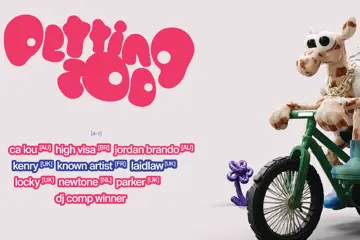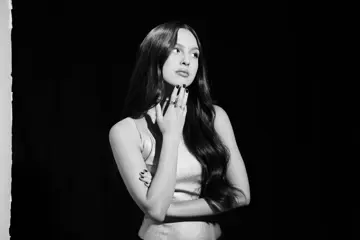 Juana Molina
Juana MolinaIt had been years since Molina had released her last album, years since she’d gone through the process of recording. “I really was completely away from music and didn’t even know how to start,” she explains. A recommendation from a friend saw her trade in her favourite plug-ins for the guitar pedals they were based on, and that change, that shift to the physical, gave her that necessary starting point.
“New instruments make you compose differently, or at least, new instruments give you new ideas. The only thing I had in mind for this record was to not transit the same paths that I knew very well after making five records. I felt that I had discovered a way, a very easy way, to write a song, and I didn’t want to do it the same way [any more]. I had discovered my own formula, but once you see it, it stops working. And what I wanted was to not use the same tools or the same way of composing. I avoided everything that I knew, or I tried to. I don’t know if I actually managed to get away from what I am, but at least the trip was different.”
The potential for change is something Molina also finds attractive in the live environment. Even the possibility that things could go wrong has a certain appeal. “It makes me more focused on what I’m doing. It makes me be really attentive.” That desire for risk, for the permutations that a truly live show can bring, quickly made her decide to avoid using laptops when she began performing.
Don't miss a beat with our FREE daily newsletter
“I started [using laptops live] with my very first record, because I was on my own, and I wanted the live show to sound exactly like the record. I thought that if it didn’t, the audience would be disappointed. So I triggered some tracks and then I played on top of that. But after the third show, I was actually thinking about something else while I was playing. That wasn’t good at all, because you can’t transmit anything like that. So I decided to strip down everything, to take only what really matters, what makes the song the song. And all that risk, that the things could fall, or you could get a wrong loop, there are a hundred-trillion things that could go wrong, and many times do, but I think that’s more alive.”
Molina’s solo act has now expanded to a trio. “I’ve been playing on my own for years and years and years, and I managed to really recreate the songs, with many, many layers. I’ve accomplished a very rich sound in a live show, with only my little looping pedal,” she admits. But the dynamics of Wed 21 are a departure and so she’s brought a band on board to help make it more alive.
“This new record has things that stop all at the same time, which would be easy to do with a loop pedal – you just press stop. I could make versions of the songs, but I think that everything would sound a little bit like what I’ve done already, if I played on my own.
“Also, when you record something one day and you are maybe a little sad, you have this recording, with all those feelings on that track. When you trigger that, it doesn’t belong to the present any more, it’s like something dead. In my case, the tempo for instance, even if the difference is nothing – one tick slower or faster – if it doesn’t have the tempo of the day, it doesn’t have the feel of the day. The songs are pretty much the same in every show, but they have the presence of the new baking. It’s like cooking. You do the same food every day, with the same ingredients, but it’s not exactly the same. Today is really nicer than yesterday, ‘Oh, what did you do?’ ‘I don’t know, it’s exactly the same recipe, but today it was just better.’ And I like those differences.”















